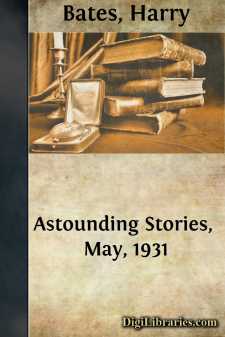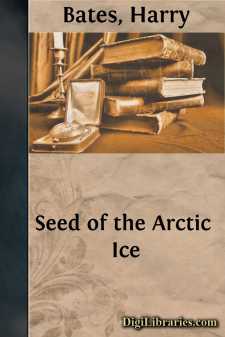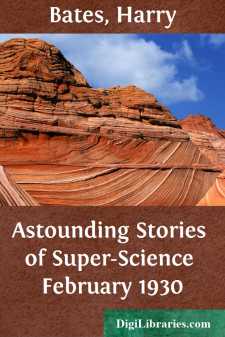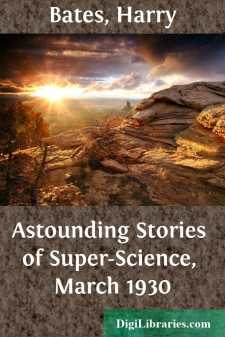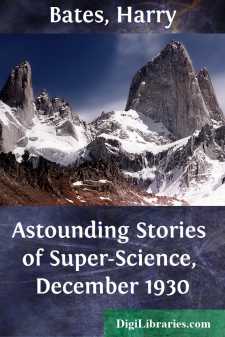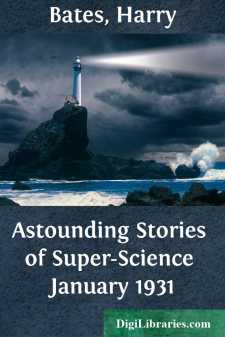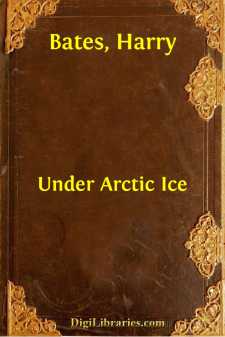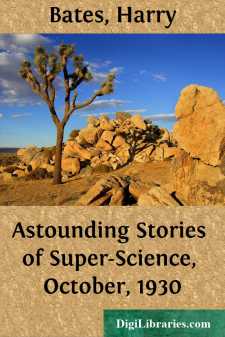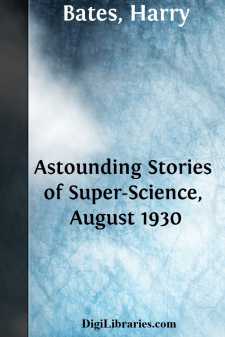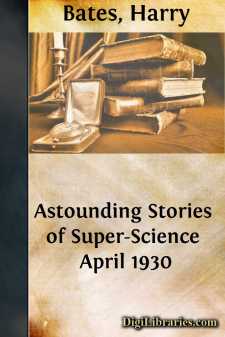Categories
- Antiques & Collectibles 13
- Architecture 36
- Art 48
- Bibles 22
- Biography & Autobiography 813
- Body, Mind & Spirit 142
- Business & Economics 28
- Children's Books 16
- Children's Fiction 13
- Computers 4
- Cooking 94
- Crafts & Hobbies 4
- Drama 346
- Education 46
- Family & Relationships 57
- Fiction 11829
- Games 19
- Gardening 17
- Health & Fitness 34
- History 1377
- House & Home 1
- Humor 147
- Juvenile Fiction 1873
- Juvenile Nonfiction 202
- Language Arts & Disciplines 88
- Law 16
- Literary Collections 686
- Literary Criticism 179
- Mathematics 13
- Medical 41
- Music 40
- Nature 179
- Non-Classifiable 1768
- Performing Arts 7
- Periodicals 1453
- Philosophy 64
- Photography 2
- Poetry 896
- Political Science 203
- Psychology 42
- Reference 154
- Religion 513
- Science 126
- Self-Help 84
- Social Science 81
- Sports & Recreation 34
- Study Aids 3
- Technology & Engineering 59
- Transportation 23
- Travel 463
- True Crime 29
Harry Bates
Harry Bates (1900-1981) was an American science fiction writer known for his short stories and editorial work in the genre during the Golden Age of Science Fiction. He is most famous for his 1940 short story "Farewell to the Master," which was adapted into the classic sci-fi film "The Day the Earth Stood Still" (1951). Bates was also the founding editor of *Astounding Science Fiction*, a pioneering magazine that played a crucial role in shaping science fiction literature in the mid-20th century.
Author's Books:
Sort by:
by:
Harry Bates
There Comes a New WorldMysterious, dark, out of the unknown deep comes a new satellite to lure three courageous Earthlings on to strange adventures.he one hundred and fifty-ninth floor of the great Transportation Building allowed one standing at a window to look down upon the roofs of the countless buildings that were New York. Flat-decked, all of them; busy places of hangars and machine shops and...
more...
by:
Harry Bates
Sleepily the lookout stared at the scope-screen before him, wishing for something that would break the monotony of the scene it pictured: the schools of ghostly fish fleeting by, the occasional shafts of pale sunlight filtering down through breaks in the ice-floes above, the long snaky ropes of underwater growth. None of this was conducive to wakefulness; nor did the half-speed drone of the electric...
more...
by:
Harry Bates
Two miles west of the village of Laketon there lived an aged recluse who was known only as Old Crompton. As far back as the villagers could remember he had visited the town regularly twice a month, each time tottering his lonely way homeward with a load of provisions. He appeared to be well supplied with funds, but purchased sparingly as became a miserly hermit. And so vicious was his tongue that few...
more...
by:
Harry Bates
onfound it, Carnes, I am on my vacation!” “I know it, Doctor, and I hate to disturb you, but I felt that I simply had to. I have one of the weirdest cases on my hands that I have ever been mixed up in and I think that you’ll forgive me for calling you when I tell you about it.” How could a human body be found actually splintered––broken into sharp fragments like a shattered glass! Once...
more...
by:
Harry Bates
batalões turned from the open waters of the lower Tapajos River into the igarapé, the lily-smothered shallows that often mark an Indian settlement in the jungles of Brazil. One of the two half-breed rubber-gatherers suddenly stopped his batalõe by thrusting a paddle against a giant clump of lilies. In a corruption of the Tupi dialect, he called over to the white man occupying the other frail craft....
more...
by:
Harry Bates
An officer of the Special Patrol Service dropped in to see me the other day. He was a young fellow, very sure of himself, and very kindly towards an old man. He was doing a monograph, he said, for his own amusement, upon the early forms of our present offensive and defensive weapons. Could I tell him about the first Deuber spheres and the earlier disintegrator rays and the crude atomic bombs we tried...
more...
by:
Harry Bates
An Empty Room The house where the long trail started was one of gray walls, gray rooms and gray corridors, with carpets that muffled the feet which at intervals passed along them. It was a house of silence, brooding within the high fence that shut it and the grounds from a landscape torpid under the hot sun of summer, and across which occasionally drifted the lonely, mournful whistle of a train on a...
more...
by:
Harry Bates
hope, Carnes," said Dr. Bird, "that we get good fishing." "Good fishing? Will you please tell me what you are talking about?" "I am talking about fishing, old dear. Have you seen the evening paper?" "No. What's that got to do with it?" Dr. Bird tossed across the table a copy of the Washington Post folded so as to bring uppermost an item on page three. Carnes...
more...
by:
Harry Bates
here was no use hiding from the truth. Somebody had blundered—a fatal blunder—and they were going to pay for it! Mark Forepaugh kicked the pile of hydrogen cylinders. Only a moment ago he had broken the seals—the mendacious seals that certified to the world that the flasks were fully charged. And the flasks were empty! The supply of this precious power gas, which in an emergency should have been...
more...
by:
Harry Bates
met the man who had died. A bitter, heart-numbing night of weird, shrieking wind and flying snow. A few black hours I will never forget. "Well, Jerry, lad!" my mother said to me as I pushed back from the table and started for my sheepskin coat and the lantern in the corner of the room. "Surely you're not going out a night like this? Goodness gracious, Jerry, it's not fit!"...
more...


